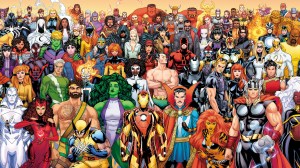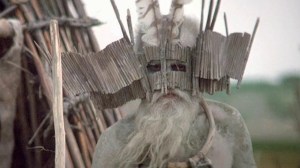Last fall, The Flash began its season in the world of “Flashpoint,” picking up on a heartbreaking and shocking cliffhanger set up at the end of the show’s second season and (loosely) adapting one of the most important and best-selling Flash comic book stories of the last decade or so.
Videos by ComicBook.com
In our opinion, repeating that formula would be a mistake this fall, when The Flash picks up from its latest shocking cliffhanger, which has replaced the show’s title lead with his sidekick.
In the final moments of The Flash‘s season 3 finale, “Finish Line,” Barry willingly surrendered himself into the Speed Force in order to save the world. When challenged that Central City needs The Flash, Barry agreed — but said that it will have one: Wally.
Wally was taken aback, but embraced his friend, mentor, and kinda-sorta brother’s request even while (like everyone else) trying to figure out a way to get Barry back.
And of course Barry will be back. There are lots of reasons, from storytelling reasons to pragmatic ones like the fact that Grant Gustin is the series lead.
We’re convinced it would be a mistake to bring him back right away, though, and that the series should give Keiynan Lonsdale’s Wally at least a few episodes to be The Flash.

We discussed this a little bit over the weekend, along with some other things we were hoping to see the series do in the premiere, but this particular point seemed worth exploring in a bit more depth.
There’s a generation of fans who grew up with Wally as their Flash, and many of the great stories and characters being adapted on The Flash actually come from that era (notably the Mark Waid and Geoff Johns runs on the series).
Savitar, for instance, was a Wally villain and while his TV story was much different than his comics one, the version that played out on the page was uniquely suited for the era of The Flash in which it was published, utilizing generations of speedsters from Jay to Wally to Jesse Quick and more.
Even outside of the comics community, there are a fair number of people whose Flash is Wally becuase he was the character on Justice League and Justice League Unlimited.
With Wonder Woman coming to theaters in a week and Black Panther in development, there has been a good deal of conversation about representation in American superhero blockbusters. Some of that — such as the “whitewashing” talk on Iron Fist — has spilled over to superhero TV, but relatively little.
It’s worth noting, then, that The Flash is not only a huge hit superhero TV series but the highest-rated series on The CW, and teasing the idea of handing that role over to a person of color — particularly to an actor who just came out as bisexual — and then immediately reversing course would likely stoke some backlash.
That would be political and cultural backlash, and it’s often difficult to tell how much that does or does not impact actual viewership numbers…but the fact that so many fans of the series weren’t happy with the quick disposition of the “Flashpoint” reality could mean that the political and cultural complaints would compound existing concerns about The Flash not taking ownership of its cliffhangers, and lead to a lot of talk that The CW doesn’t want or need.
The network particularly wouldn’t want to alienate African-American viewers just ahead of the launch of Black Lightning, a midseason premiere for The CW that’s aimed at making the network’s robust DC lineup more inclusive.
Those political and pragmatic concerns, though, only serve to highlight the very real storytelling risk that it would be to squander the potential of a Wally-as-Flash story on rehashing last year’s controversial resolution to the cliffhanger. The optics would be bad, for sure, and the timing owuldn’t be ideal, but those things could be overcome if the story was great. The problem is, even a great story would leave many fans wondering whether it could have been even greater if it didn’t dismiss a major part of The Flash’s comic book history in order to regain the status quo.
More Arrow news:
- Things We Hope to See in the Flash Season 4 Premiere
- How Will The DC Universe Respond to a New Flash?
- The Internet Reacts To The Flash’s Season 3 Finale
- What Does The Flash Finale Mean For Season 4?









